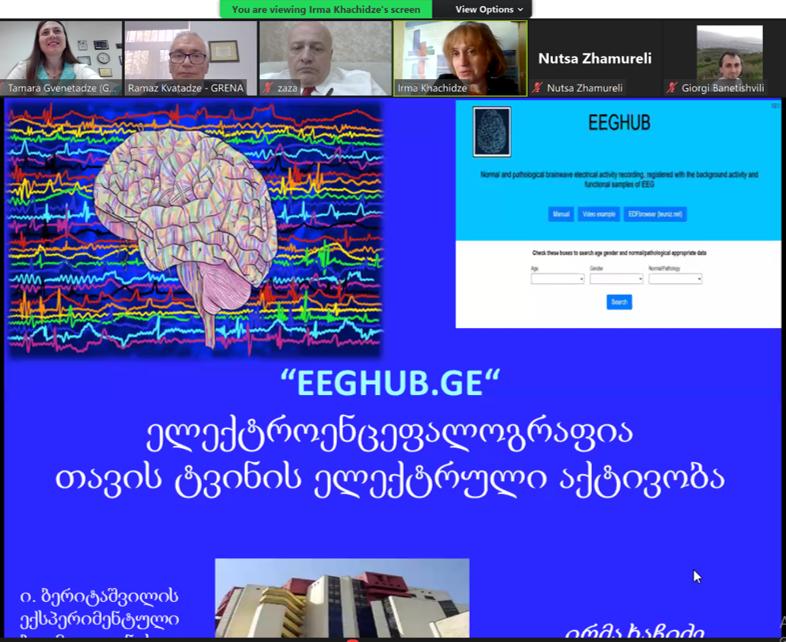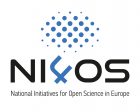
On April 15, the Georgian Research and Educational Networking Association – GRENA, within the framework of NI4OS-Europe, hosted its the National End Users EOSC training.
The training was held online and gathered 35 representatives of the research and education community from various parts of Georgia. The speakers included Irma Khachidze from Beritashvili Experimental Biomedicine Centre, Nino Pavliashvili from National Science Library of Georgia, as well as Ramaz Kvatadze and Tamara Gvenetadze from GRENA. The presenters gave talks regarding the NI4OS-Europe project, EEGHUB.GE the Electroencephalogram-Brain Electrical Activity Database, OpenAIRE and Opencience.ge Repository and EOSC portal end user functionalities.
Executive director of GRENA Ramaz Kvatadze greeted the participants and during his presentation mentioned: “Participation in EOSC is extremely important for the Georgian research and education community”.

Irma Khachidze, the main researcher of Beritashvili Centre of Experimental Biomedicine noted in her speech: “EEGHUB.GE has been selected by the EU-funded NI4OS-Europe project as a thematic service, which is the first electronic EEG database in Georgia that is systematised, stored and placed in EDF format. The service is free of charge for European and local scientists and is based on FAIR principles (findable, accessible, interoperable and reusable).”
“Openscience.ge is the national level open access digital repository that is in compliance with open science principles. Following the EOSC principles is crucial for the development of scientific field in Georgia”, stated Nino Pavliashvili, director of the national science library of Georgia.
EOSC promoter in Georgia, Tamara Gvenetadze conducted a training for the end users and shared the functionalities of EOSC portal.
NI4OS-Europe promotes national open science Cloud initiatives, services and e-infrastructure in 15 countries in South East Europe. The project aspires to enable researchers of the region to store, manage, analyze and share open scientific data, enhancing their work, boosting innovation in Science.
